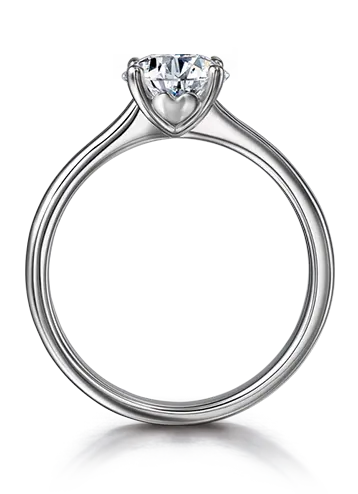
Why We Use Recycled Metals
Dirty gold mining has a history of civil war, labor abuses, and environmental devastation. Metal mining, and gold mining in particular, is one of the most environmentally destructive types of mining, and gold miners often earn low wages in dangerous working conditions.
Our objective is to help diminish the negative impacts of dirty gold by reducing the demand for newly mined metals and contributing to programs dedicated to improving mining practices.
Quality and Origin
We use recycled precious metals for our products. Our precious metals are sourced from certified responsible refiners that have been audited for standards set by organizations such as the Responsible Minerals Initiative and London Bullion Market Association. Currently, our gold fine jewelry is made of 98% recycled gold and our silver fine jewelry is made of 97% recycled silver. We continue to work with our suppliers to increase the usage of recycled metal in our products. Limited supply in the market poses a challenge to exclusively source recycled platinum, so we work with our suppliers to source recycled platinum when available and from refiners that are known to use recycled materials in their platinum products. Current disruptions in the supply chain during the COVID-19 crisis may also affect the availability of recycled precious metal. Jewyo remains committed to sourcing recycled materials when possible.
Our precious metal comes from numerous sources, including post-consumer materials, such as jewelry, industrial-use metals, and electronics components; material from in-house recycling, refining, and product manufacturing or other secondary sources; and investment gold and gold-bearing product. Currently we do not offer components and findings, like peg heads, posts, clasps, tennis bracelet mountings, and chains, from recycled sources due to limited availability. We are working with our suppliers to increase the availability of these components made from recycled sources.
What We Can Do
We can choose recycled metals to decrease the global demand for newly mined gold. This will diminish the environmentally and socially destructive effects of dirty gold and other metal mining practices. Because precious metals can be recycled repeatedly without degradation in quality, they are a naturally renewable resource.
Choose Recycled Precious Metals to Protect the Environment and Reduce Demand for Dirty Gold.
Through the Jewyo Foundation, we donate to programs to reduce the environmental impact of gold mining, including training in mercury-free techniques. Learn more about our giving back efforts.
Consequences of Mining
Jewyo encourages our customers to recycle their own gold and platinum jewelry that they no longer wear.
We will gladly accept and recycle any gold or platinum jewelry, and we will offer a credit towards any Jewyo purchase of equal or greater value based on current metal prices.
Please note that after 30 days from the initial credit notice, if we have not received instructions to return jewelry to you, Jewyo reserves the right to recycle all items sent in for evaluation and apply a store credit to your account.
Responsibly Sourced Tungsten, Meteorite, and Tantalum
In addition to recycled silver, gold, and platinum, Jewyo offers responsibly sourced tungsten and meteorite jewelry. These rare metals offer a striking and distinctive look.
The tungsten in our jewelry originates from mining areas that are not identified as geographies producing conflict minerals. Our tungsten is processed in refiners that conform to the Responsible Minerals Initiative’s Responsible Minerals Assurance Process (RMAP). The RMAP is designed to meet requirements set by the OECD Due Diligence Guidance and government regulations on conflict minerals in the US and European Union.
Jewyo’s meteorite jewelry is composed of Muonionalusta iron. This extraterrestrial material is estimated to have fallen to earth between 120,000 - 800,000 years ago, and is collected in Sweden from one of the earth’s largest and oldest meteorite fields.
Tantalum is a natural chemical earth metal. It belongs to a class of metals known as refractory metals, which are defined by their strong resistance to heat and wear. Jewyo only uses conflict-free tantalum, processed in conflict-free mines and production facilities.

